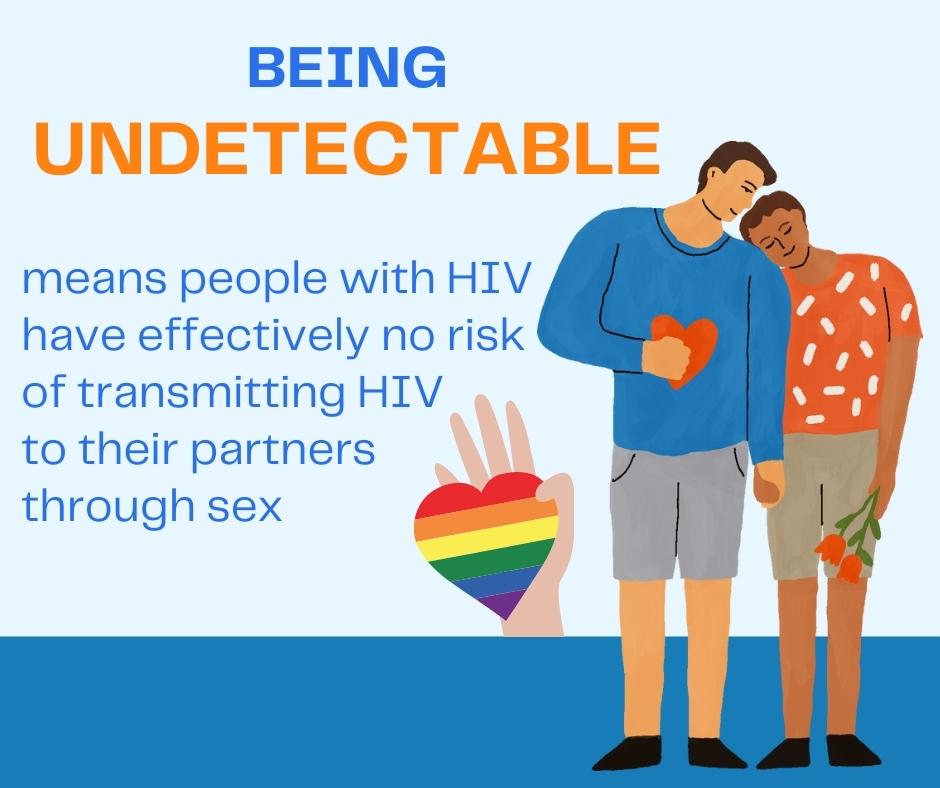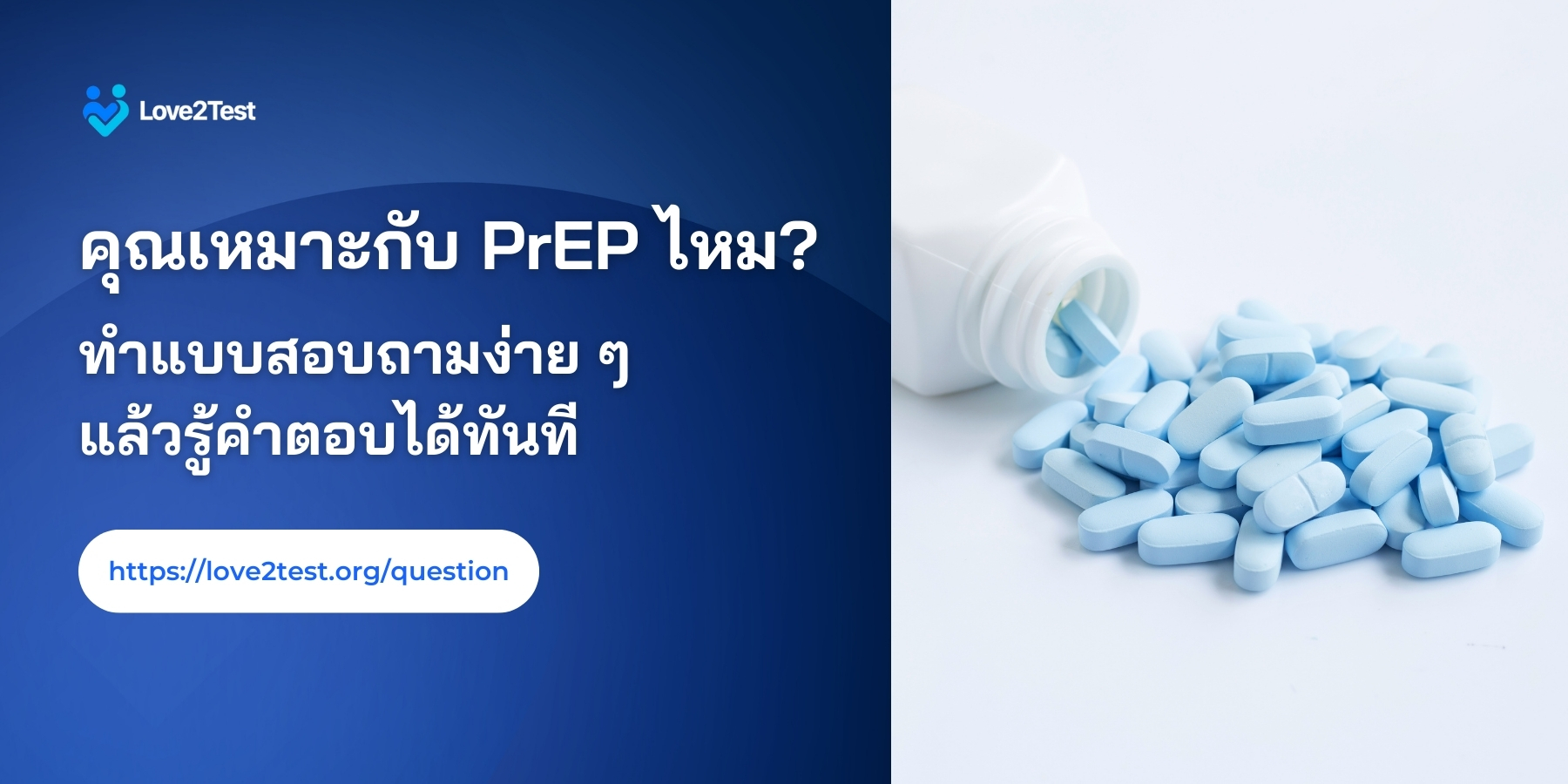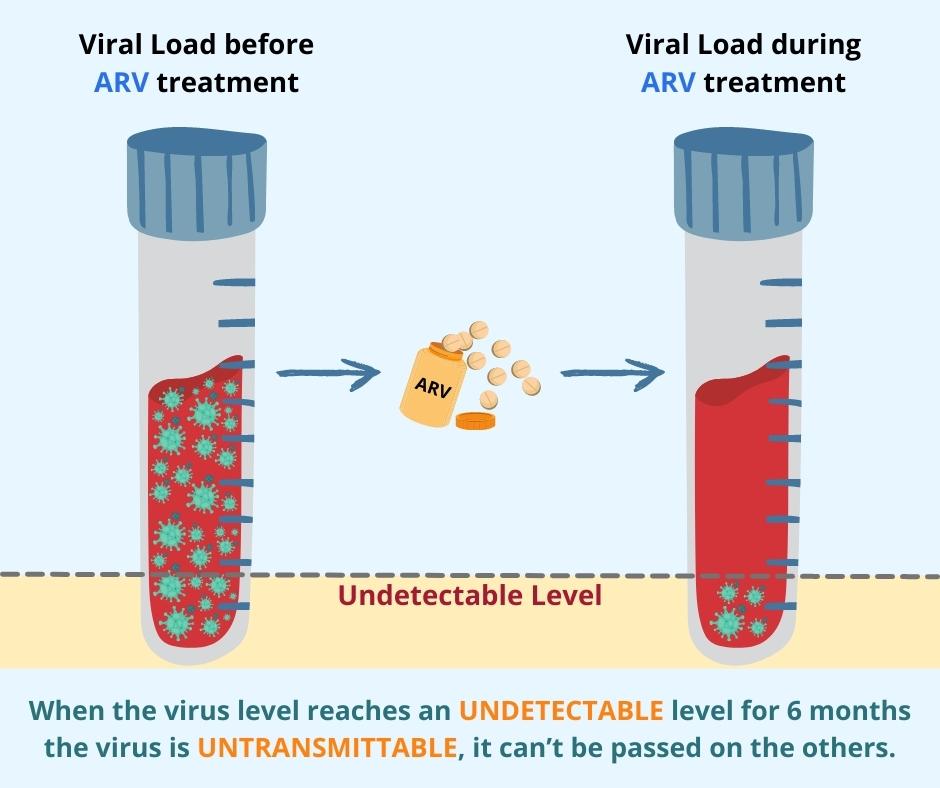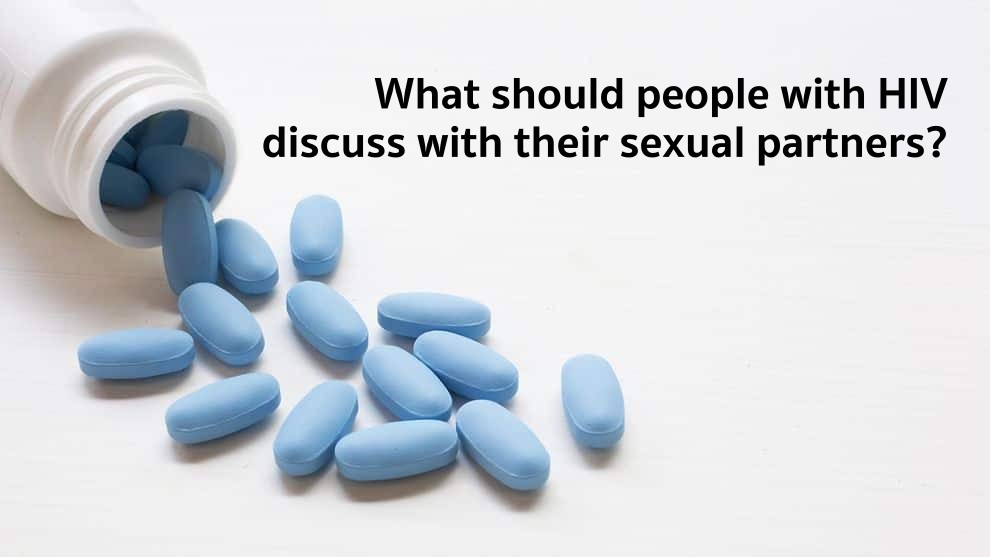To the advances in HIV research and medication, we can now say with confidence that people on effective treatment cannot pass on HIV. This is known as an undetectable viral load.
List of Contents
- What Does “Undetectable = Untransmittable” Mean?
- Is this a cure for hiv?
- Can an undetectable viral load change over time?
- Does uequalsu or an ‘undetectable viral load’ promote condomless sex?
- The most frequent asked questions about the U=U message (Undetectable equals Untransmittable)
- How small is the risk of a person with an undetectable viral load sexually transmitting HIV?
- How long must a patient be on treatment and undetectable to be sure they will not sexually transmit HIV?
- Is there evidence that an undetectable viral load eliminates transmission through breastfeeding or injecting drugs?
- If a patient’s blood has an undetectable viral load can their genital secretions still have detectable virus?
- Why do some people have detectable viral loads?
What Does “Undetectable = Untransmittable” Mean?
When taken as prescribed, HIV medications can decrease the amount of HIV present in a person’s blood, or “HIV viral load”, (below 200 copies/ml of blood measured) to be too low to measure. This is called being undetectable. Being undetectable prevents HIV disease from progressing and allows people to live long and healthy lives. It also protects the health of their sex partners.

People cannot pass HIV through sex when they have undetectable levels of HIV. This prevention method is estimated to be 100% effective as long as the person living with HIV takes their medication as prescribed and gets and stays undetectable.
This concept known as Undetectable = Untransmittable (U=U)

How it works
- Become undetectable. This can take up to 6 months after starting HIV medication. Your health care provider will perform blood tests and let you know when you’re undetectable.
- Stay undetectable. Get a second undetectable test result at least 6 months after the first. Continue to take your HIV medications daily and visit your health care provider regularly. They will monitor your blood tests to make sure you’re still undetectable.
What is the risk of hiv of passing hiv on when you are undetectable?
People on effective HIV treatment cannot pass on the virus. That is because HIV medication (antiretroviral treatment or ART) works by reducing the amount of the virus in the blood to ‘undetectable’ levels. This means the levels of HIV are so low that the virus cannot be passed on. It can take up to six months for some people to become undetectable from when they start treatment.
What is effective treatment?
to mean that someone is on treatment, taking it as prescribed and has what we call an undetectable viral load. From studies found that there remains a transmission risk within the first six months of treatment. For the HIV positive partner it may take time for the viral load to reduce to undetectable. Effective treatment means someone has been taking it as prescribed for at least six months and has an undetectable viral load.
What is the evidence for this?
Scientific evidence over the last 20 years demonstrates that the likelihood of HIV transmission has much to do with ones ‘viral load’ (the amount of the virus in the blood). From study looked at 888 gay and straight couples (and 58,000 sex acts) where one partner was HIV positive and on effective treatment and one was HIV negative. Results found that where the HIV positive partner had an undetectable viral load, there were no cases of HIV transmission, whether they had anal or vaginal sex without a condom. This is the most robust evidence to date and gives us confidence, that people on effective treatment cannot pass on HIV.


Is this a cure for hiv?
Being ‘undetectable’ is not a cure, as the virus is still present. However, effective treatment does mean that you can have a normal life expectancy and cannot pass on the virus to others. There is no reason why HIV should stop you living, working, dating or starting a family as with anyone else.
Can an undetectable viral load change over time?
The presence of other sexually transmitted infections (STIs) can potentially affect viral load. HIV treatment can only be successful if you have access to it and are taking it as prescribed. We know that if you take effective HIV treatment as prescribed and have an undetectable viral load, you cannot pass on HIV. if you are having any problems taking your medication, for any reason, then you discuss that as soon as possible with your HIV doctor, GP or peer support worker.
Why are we getting this message out?
We want to dispel the stigma, discrimination and myths that many people living with HIV face on a daily basis. Even their employers and healthcare professionals often discriminate against, people living with HIV for fear that they are infectious. If everybody knows that people on effective HIV treatment cannot pass on the virus, we could end this stigma.
Sharing this message, undetectable equals untransmittable or U=U, will bring down HIV transmissions by encouraging more people to test for HIV and to accept treatment.
Does uequalsu or an ‘undetectable viral load’ promote condomless sex?
In our experience, being ‘undetectable’ does not mean people completely stop using condoms. While being on effective treatment means you cannot pass on HIV, condoms are the best way to prevent other STIs. For many people, condoms will remain their preferred way for preventing HIV transmission.
The most frequent asked questions about the U=U message (Undetectable equals Untransmittable)
How small is the risk of a person with an undetectable viral load sexually transmitting HIV?
Cases of HIV transmission when the positive partner was virally suppressed. People who maintain an undetectable viral load have effectively no risk of sexual transmission of HIV or do not sexually transmit HIV.
How long must a patient be on treatment and undetectable to be sure they will not sexually transmit HIV?
It can take several weeks of daily adherence to antiretroviral therapy before an individual’s viral load becomes undetectable. Transmissions occurred from HIV-positive partners who had recently started antiretroviral treatment and were not yet virally suppressed. And advise patients and providers to wait six months after the first undetectable viral load test before considering the patient to be virally suppressed and their virus to be untransmittable.
Is there evidence that an undetectable viral load eliminates transmission through breastfeeding or injecting drugs?
Studies demonstrate that antiretroviral treatment greatly reduces the risk of HIV transmission from individuals who breastfeed or share equipment while injecting drugs. More research is needed, however, to establish that these individuals do not transmit HIV. The “U = U” message is limited to sexual transmission.
If a patient’s blood has an undetectable viral load can their genital secretions still have detectable virus?
Yes. In research studies, 8% to 16% of semen samples from HIV-positive men had detectable virus when the man’s blood plasma viral load was undetectable. A similar dynamic holds for residual virus in vaginal secretions. However, people with detectable virus in their genital secretions were part of studies that showed no transmission from people with undetectable blood plasma viral loads. Together, these research findings demonstrate that people with durably undetectable plasma viral loads do not sexually transmit HIV, even those who have residual virus in genital secretions. The theoretical risk of transmission when plasma and genital secretions were discordant does not minimize the actual finding of zero linked transmissions in these studies.
Why do some people have detectable viral loads?
- Some people who have access to HIV treatment
may choose not to be treated or may not be ready to start treatment. Others start treatment but have challenges with adherence for a variety of reasons, including stigma, mental and behavioral health issues, substance use, homelessness or housing instability, difficulty paying for medications, hostile environments, drug resistance, and/or uncomfortable side effects.
- Some people with low
but detectable viral loads also cannot transmit HIV. For instance, someone who is virally suppressed (fewer than 200 copies per mL) and still detectable cannot transmit HIV. Major studies on this subject were based on the risk of HIV transmission from people who were virally suppressed. Be sure to let your patients know that people living with HIV, regardless of viral load, have options for full and healthy social, sexual and reproductive lives.
How can I support patients struggling to become undetectable?
The U = U message is powerful encouragement for people with HIV to engage in care and adhere to treatment. Counsel patients with HIV that if they take their antiretroviral medicines every day and maintain an undetectable viral load, they will avoid damage to their body and immune system and will not transmit HIV to their sexual partners.
Should patients with HIV always use condoms?
Condoms are a fundamental part of the sexual health toolkit. Counsel patients that condoms — unlike HIV treatment, PrEP or PEP (pre- and post-exposure prophylaxis) — prevent other sexually transmitted infections (STIs) and unintended pregnancy. Condoms can help all patients lead healthy sexual lives.
Be sure to counsel patients that maintaining an undetectable viral load is very effective in preventing the transmission of HIV, even if they do not use condoms every time they have sex.
Are the partners of HIV-positive people at high risk of HIV infection?
Past HIV prevention messaging has considered the sexual partners of people with HIV to be at a very high risk of HIV infection. This message stigmatizes people with HIV and discourages disclosure, HIV testing and treatment. Science has redefined safer sex to include prevention strategies such as HIV treatment, PrEP and PEP. People who are unaware of their status should get tested so they can make a prevention and treatment plan that fits their needs.

What should people with HIV discuss with their sexual partners? If a patient is HIV undetectable, should their partner take PrEP?
Couples share the responsibility of preventing HIV. Counsel both HIV-positive patients and their partners on strategies to maintain a healthy, fulfilling and worry-free sex life, including the use of condoms, HIV treatment, PrEP and PEP. Emphasize that condoms play a fundamental role in preventing HIV and other STIs, and unintended pregnancy.
Encourage HIV-positive patients
To talk to their current or potential partners about what an undetectable viral load is and that virally suppressed people do not sexually transmit HIV. Couples may decide that antiretroviral treatment for the HIV-positive partner provides sufficient protection against HIV transmission. HIV-negative partners may choose to take PrEP, particularly if they have other sexual partners; are unsure of their partner’s viral load or their partner’s ability to stay consistently suppressed; or feel more secure in their sex lives with the added protection of PrEP.
What should I tell an HIV-negative patient whose partner says they are undetectable?
Share the news that that people with undetectable viral loads do not transmit HIV through sex. If patients are unsure if their partners are undetectable, encourage them to take steps to protect themselves from HIV, like using condoms or taking PrEP.
References
UequalsU
- livingpositivevictoria.org.au/living-with-hiv/uequalsu/
What does undetectable = untransmittable (U=U) mean?
- aidsmap.com/about-hiv/what-does-undetectable-untransmittable-uu-mean
Undetectable = Untransmittable (U=U)
- health.state.mn.us/diseases/hiv/prevention/uu/index.html
HIV Undetectable = Untransmittable (U = U) — Information for Providers
- nyc.gov/site/doh/providers/health-topics/hiv-u-u.page
What Does “Undetectable = Untransmittable” Mean?
- pleaseprepme.org/undetectable

